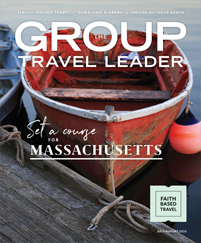Tour operator members of USTOA are enjoying a several-year run of business growth that would be impressive in a strong economy. In the stop-and-start economy of the past several years, it seems astonishing. As a result, the mood at the recent 2014 USTOA Annual Conference, held December 5-7, reflected a continuing “doubling down” mind-set of many top-tier travel companies.
“Our members are experiencing significant growth in spite of an uneven economy over the past several years,” said USTOA president and CEO Terry Dale. “From 2012 to 2013, our active members showed 16 percent growth as a group, and from 2013 to 2014, they showed 18 percent growth. Our Pricewaterhouse Coopers survey for the coming year shows that 95 percent of our tour companies are forecasting significant growth again in 2015.”
More than 850 delegates attended the annual gathering held at the Boca Raton Resort and Club. At a TED-style session that featured thought leaders from several industries, the optimism looking ahead was reinforced.
“Fuel prices have dropped by roughly 40 percent thus far and are projected to remain low in the coming year,” said Peter Ricchiuti, a Tulane University economist. “That amounts to a $160 billion tax cut for American consumers, and a lot of that will go to discretionary spending.
“Housing starts are low but rising,” he said. “Millennials have a love for travel. They’re fearless. Consumer confidence is at a seven-year high. The economy is creating 200,000 new jobs each month.”
Robin Chase, founder and former chair of Zipcar, shared her views on the entrepreneurial acumen that is reshaping tourism.
“InterContinental is the largest hotel company in the world in terms of room inventory, with roughly 650,000 rooms,” she said. “Some of their brands are 60 years old. Airbnb built an inventory of 650,000 rooms in four years. From a business concept standpoint, we’re living in an age of miracles.”
“The collaborative economy is the future,” said Chase. “Today, there are more networked minds creating companies than proprietary minds creating companies.”
In a video interview with The Group Travel Leader, Dale discussed the findings of USTOA’s ongoing research initiative with MBA students at Cornell University.
“Our research this year on millennials revealed that we should not focus on demographics but focus on consumer behavior,” he said. “They want the same things that boomers want. That was good news because it means we don’t have to reinvent the whole product.
“They’re getting married later and purchasing homes later, but they are traveling now. Interestingly enough, millennials as a group are more inclined to recommend a tour operator than boomers are, by 88 percent to 77 percent.
“In 2015, we’re turning our research focus to the BRIC [Brazil, Russia, India, China] countries,” Dale said. “Those huge counties have growing middle classes, and we’d like to know if those consumers would purchase a USTOA member tour product. If so, we want to know how to get into their distribution systems.”











